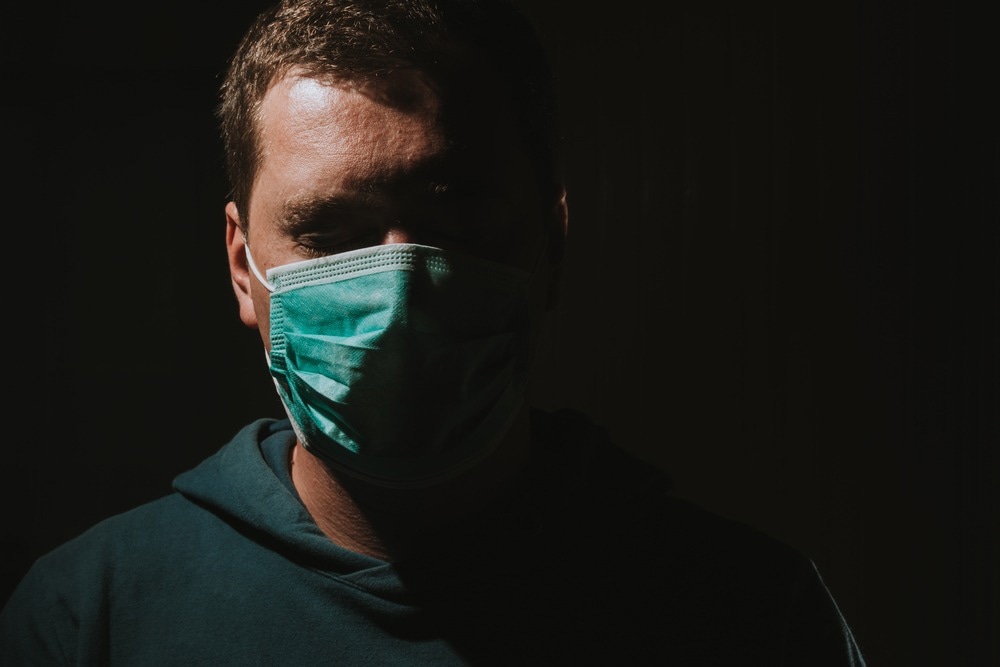Understanding COVID-19 mortality in people with severe mental illness and different ethnicities
In a recent study published in the British Journal of Psychiatry, researchers evaluated mortality in individuals with severe mental illness (SMI) following coronavirus disease 2019 (COVID-19) infection.

People with SMI have a 15-to-20-year reduced life expectancy relative to the general public, which has remained consistently high over decades before the COVID-19 pandemic, regardless of ethnicity and race. Further, reports suggest that individuals with SMI have an excess death risk due to COVID-19 and other causes and, generally, have a higher risk of hospitalization, with concerns that pre-existing conditions might contribute to this (excess) risk.
The COVID-19 pandemic has exacerbated pre-existing inequalities, especially in relation to ethnicity/race. The intersection of ethnicity/race with SMI on COVID-19 outcomes remains unclear. Moreover, some racial minority groups have a higher prevalence of multimorbidity, and there are concerns that these groups may experience delayed access to testing and vaccination. Further, how SMI in racial minorities contributes to excess mortality risk after COVID-19 remains unknown.
Exploring the determinant factors of post-COVID-19 mortality
In the present study, researchers investigated whether mortality risk was higher in people with SMI post-COVID-19 and whether multimorbidity and ethnicity/race had any effect on this risk. Data from family practices in Northern Ireland and England were obtained from the Aurum database. Patients in this database broadly represented the United Kingdom (UK) population by age, sex, area-level deprivation, and geographical distribution.
The SMI group included patients aged ≥ 5 with an SMI and a definitive infection with severe acute respiratory syndrome coronavirus 2 (SARS-CoV-2) between February 2020 and March 2021. They defined SMI as having at least one record for bipolar disorder, schizoaffective disorder, schizophrenia, or other affective disorders with psychosis. The population control group included SARS-CoV-2-positive patients without an SMI diagnosis.
Patients were followed up until death, registration termination, or study end date. Notably, patients with an SMI diagnosis after COVID-19 were excluded to reduce reverse causation risk. The study’s outcome was all-cause mortality. Covariate factors used to find determinant factors were demographic factors like age, sex, ethnicity, area deprivation, and geographical regions. Area deprivation was a composite metric of area-level skills, education, income, crime, disability, health, housing, training, and employment.
Data on admission to intensive care unit (ICU), multimorbidity linked with higher COVID-19 risk, and corticosteroid drug and immunological therapy were also included. Clinical variables included body mass index (BMI) and smoking status. Multivariable Cox proportional hazards regression was used to estimate differences in mortality between SMI and control groups.
Linking severe mental illness with post-COVID-19 mortality
The study included 7,146 patients in the SMI group and 653,024 controls. Patients in the SMI group were older than controls; the SMI group had a higher proportion of patients with obesity and multimorbidity, current smokers, and people of Black African/Caribbean ethnicity. The study period spanned two COVID-19 waves.
The SMI group had a higher likelihood of death from COVID-19 than controls. COVID-19 deaths in the UK surged from March/April 2020, and no casualties were observed initially within the first 60 days post-COVID-19. There were fewer deaths within 60 to 90 days post-infection. The researchers observed steeper declines in survival probabilities in the SMI group during both COVID-19 waves, which were reproduced in covariate-adjusted survival probabilities.
Patients in the SMI group were at a higher risk of all-cause mortality in gender- and age-adjusted models, which was consistent in models with further adjustment for smoking status, BMI, area deprivation, multimorbidity, and ethnicity/race. There were no interactions between ethnicity/race and SMI.
Nonetheless, Black African/Caribbean groups had a higher mortality risk following COVID-19 than White people. The adjusted hazard ratio for all-cause mortality in the SMI group was 1.71 and 1.4 in the first and second waves, respectively, compared to controls. Notably, the researchers observed a statistical interaction between SMI and multimorbidity.
Data indicated that the additional, multiplicative effect of multimorbidity was significant in both groups but greater in controls. Sensitivity analyses, in which SMI and control patients were matched on the number of multimorbid conditions, produced similar results as the primary analysis. Additionally, results were comparable when SMI patients under 18 were excluded.
Conclusions
Taken together, the study demonstrated that SMI patients experienced a substantially greater risk of death from COVID-19. Mortality among SMI patients increased steeply during the first wave of COVID-19 compared to controls. Both groups showed a steep decline in survival probability at about 400 days. Furthermore, the SMI group had a greater and longer risk of all-cause mortality during the second wave than controls.
Black people were at a higher risk of death from COVID-19 than White people. The findings highlighted the effect of multimorbidity on mortality risk in both groups. Overall, the study underscored that SMI patients experienced substantial inequalities in mortality outcomes during COVID-19, magnified by multimorbidity.




